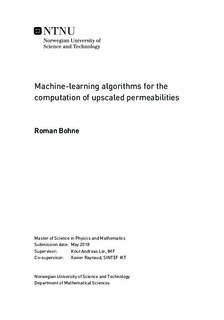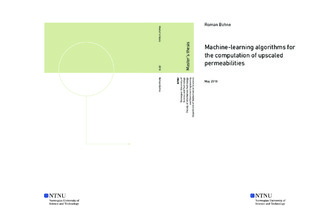| dc.description.abstract | In full-scale reservoir simulation models, the characteristics of the rock are
not fully resolved. Upscaled permeabilities are used to account for the
effective behaviour of a composite region. By averaging the fine properties of
the flow, they provide a simple linear correlation between the flux and the
pressure drop. The goal of this master project is to assess the performance of
machine-learning algorithms for the computation of upscaled permeabilities. The
methodology is to use high resolution simulations on a randomly generated set of
fine scale models. This data set will be used as training set for a machine
learning algorithm. Ordinary least squares and Kernel Ridge regression
algorithms will be the two different machine learning algorithms that will be
tested and
compared. We will also investigate the robustness of the algorithms with respect
to the choice of
the statistical distributions used for the generation of the fine scale models.
Our results show that both the ordinary least squares and Kernel Ridge is
capable to capture the upscaled behaviour of the flow and
encode it into a single coefficient, namely the upscaled permeability. Hence
they will capture the underlying
physics of the problem. However, Ordinary least squares does so with a high error
that is likely to limit the usefulness of that particular algorithm. | |

